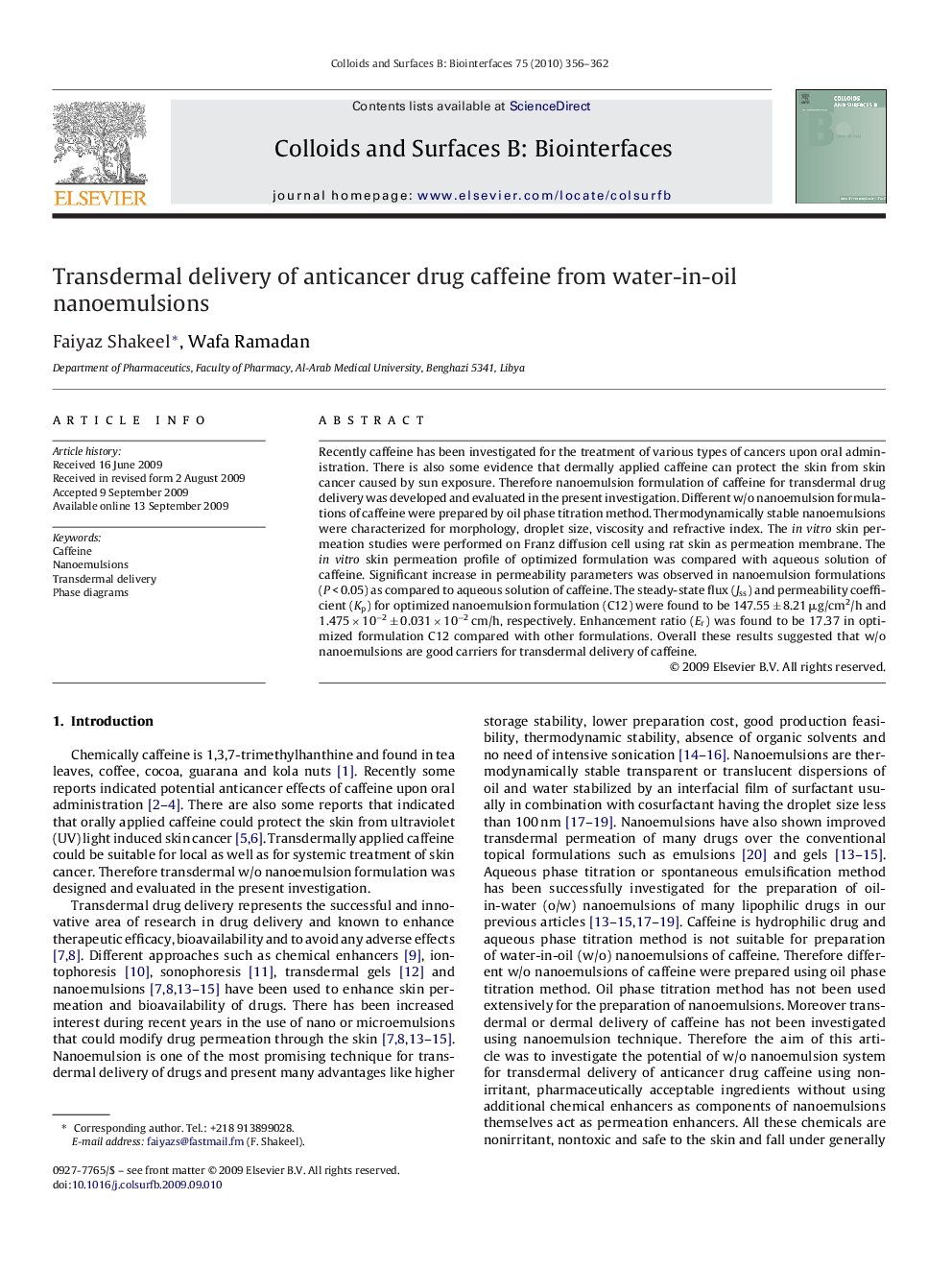| Article ID | Journal | Published Year | Pages | File Type |
|---|---|---|---|---|
| 601980 | Colloids and Surfaces B: Biointerfaces | 2010 | 7 Pages |
Recently caffeine has been investigated for the treatment of various types of cancers upon oral administration. There is also some evidence that dermally applied caffeine can protect the skin from skin cancer caused by sun exposure. Therefore nanoemulsion formulation of caffeine for transdermal drug delivery was developed and evaluated in the present investigation. Different w/o nanoemulsion formulations of caffeine were prepared by oil phase titration method. Thermodynamically stable nanoemulsions were characterized for morphology, droplet size, viscosity and refractive index. The invitro skin permeation studies were performed on Franz diffusion cell using rat skin as permeation membrane. The in vitro skin permeation profile of optimized formulation was compared with aqueous solution of caffeine. Significant increase in permeability parameters was observed in nanoemulsion formulations (P < 0.05) as compared to aqueous solution of caffeine. The steady-state flux (Jss) and permeability coefficient (Kp) for optimized nanoemulsion formulation (C12) were found to be 147.55 ± 8.21 μg/cm2/h and 1.475 × 10−2 ± 0.031 × 10−2 cm/h, respectively. Enhancement ratio (Er) was found to be 17.37 in optimized formulation C12 compared with other formulations. Overall these results suggested that w/o nanoemulsions are good carriers for transdermal delivery of caffeine.
